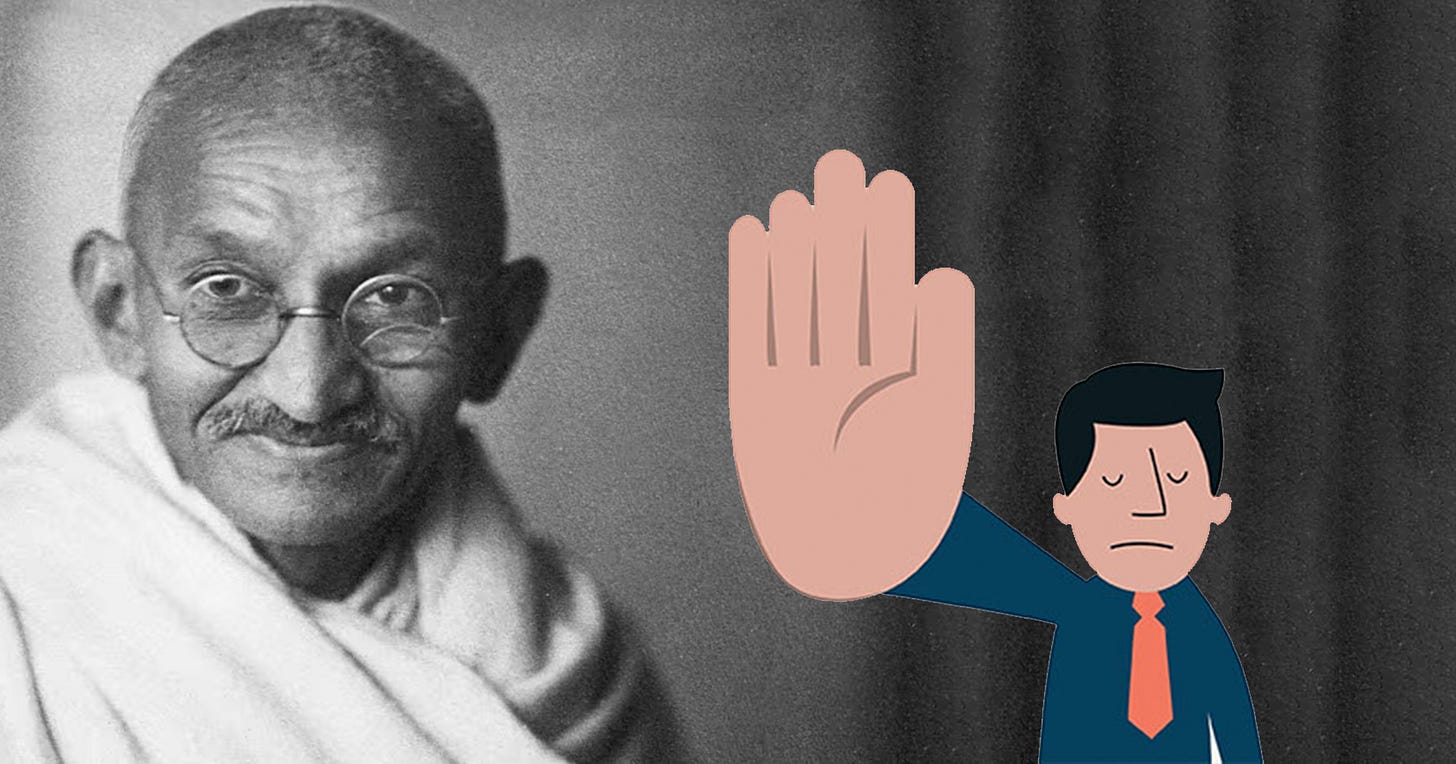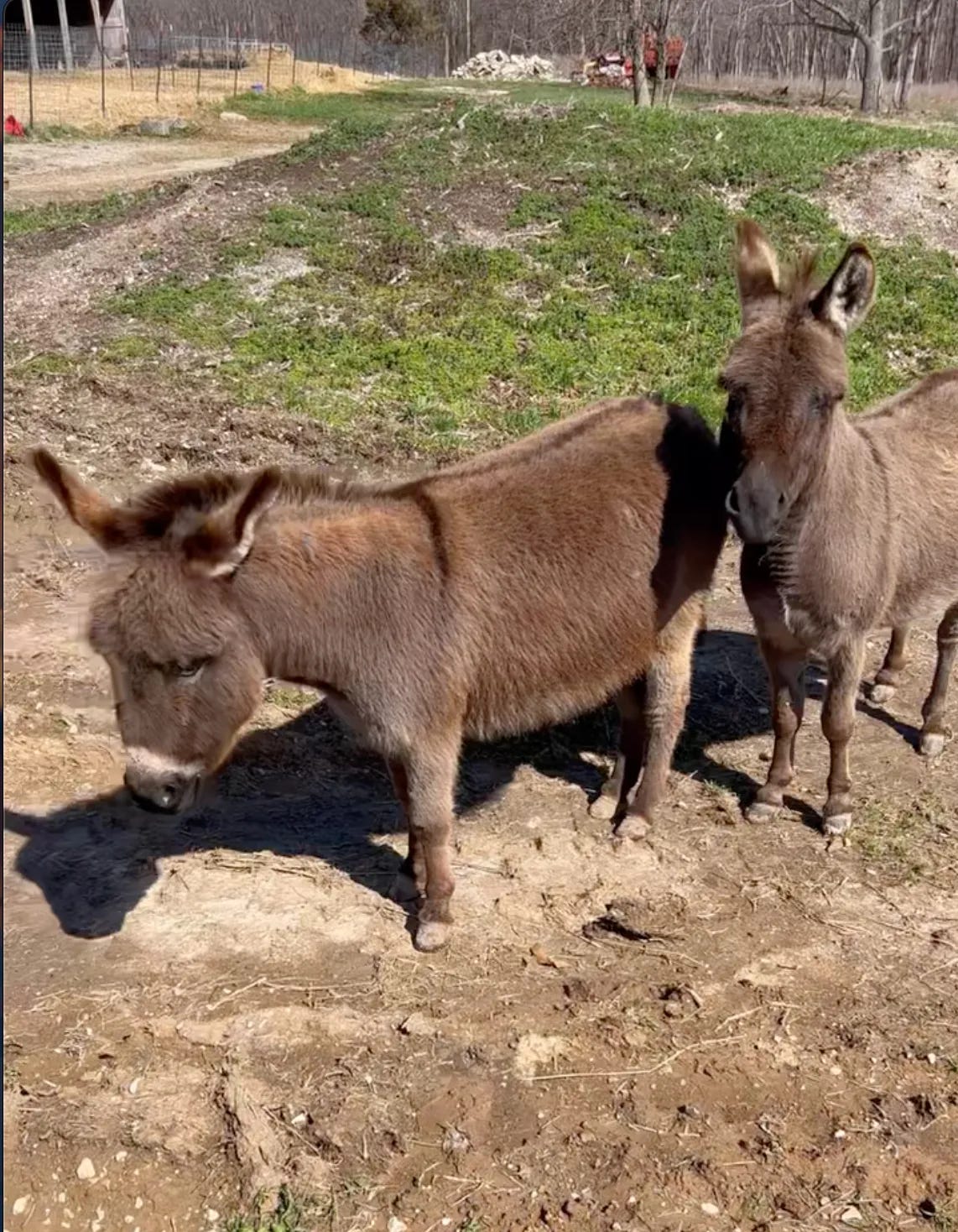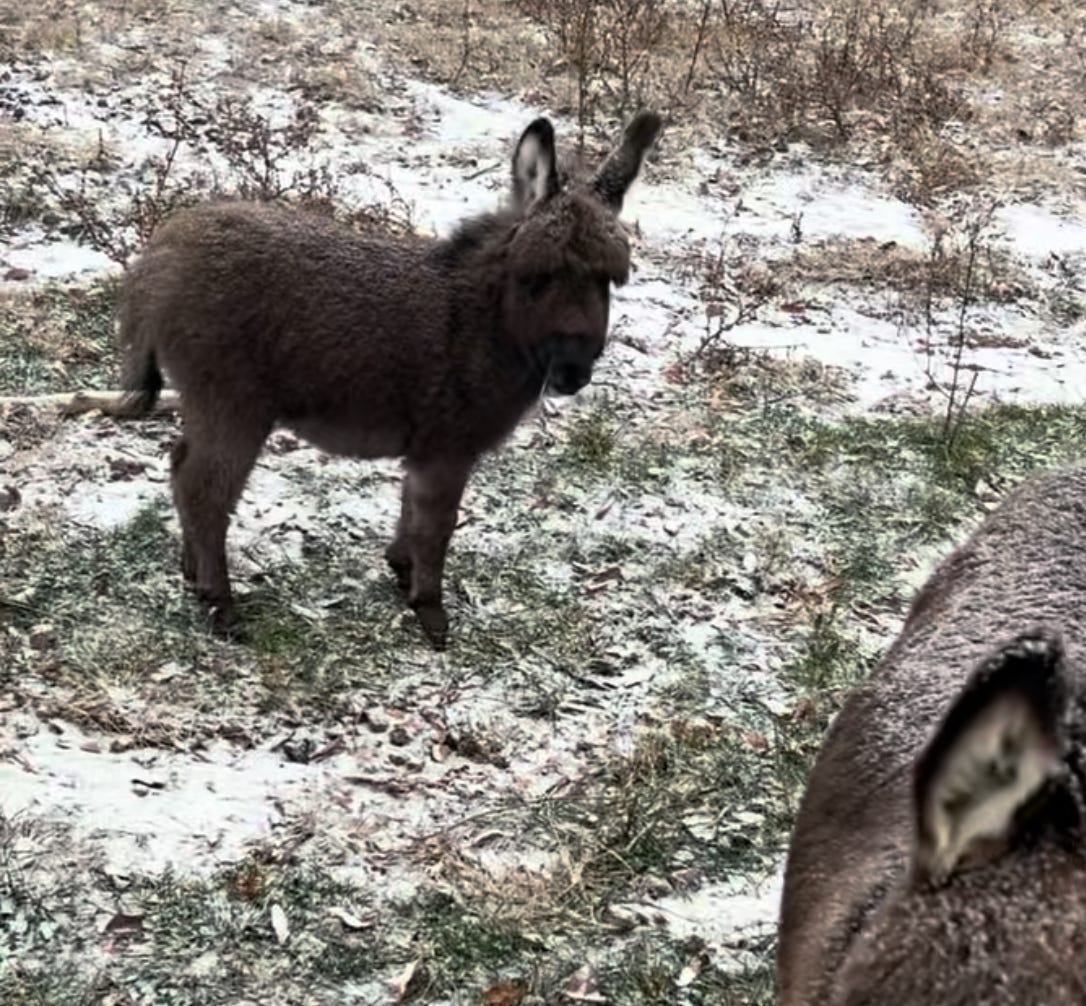There was a snake in the kitchen.
At first, my farmer partner didn’t believe me.
We were eating breakfast and his back was to the countertop, where I’d noticed a twirl of blue-green motion.
“Snake,” I said again.
“There hasn’t been a snake in this house ever,” he scoffed, turning around.
But now there was: a four-foot coil, perched on the high counter, peeling its head towards an empty carton of eggs.
My partner went pale.
I quietly got up from my chair and went to the living room, where I lay down on the couch and covered my head with pillows.
A moment later, my partner came in and sat down on the couch too.
I jerked up. “What are you doing?”
“What do you mean?” he said.
Now I went pale. “There is a snake in your kitchen! You need to deal with it!”
“Why do I have to deal with it!” he argued.
“Because this is your farm and someone in the relationship is always the protector who sacrifices themselves to save the other from bears or snakes or dinosaurs or whatever mythical creatures couples might hypothetically conjure for such an imagined scenario to prove their love, but in this case, the scenario is real, and that protector is you.”
“I want my money back,” he muttered, as he stood up, his usual refrain when the world has turned against him.
From the couch, I watched. He put on gloves, studied the snake from about ten feet away for a good three minutes. Then, he charged forward, grabbed it with both hands, and dashed out of the house, hurling the thing like a shot-putter down the hill, with a Maximus roar. He returned, chest puffed, expecting a hero’s welcome.
“It’s going to come back,” I said.
And it did. The next day, terrorizing the housekeeper, before slinking out the front door, our new farm haunt that came and go as it pleased.
“There are times to be Gandhi in life,” my father told my partner on the phone. “Right now is not one of those times.”
I’ll back up and say living on a farm part-time has completely changed my sense of how to write novels.
Before I moved to Missouri to be with my other half, I had a very Hollywood view of storytelling, honed by decades of city-living, plus film school and the mountains of books and films I’d consumed. There was a control and structure to the unfolding of a story. The feeling that, like everything in a man-made city, a story too was man-made.
But life on a farm has taught me the opposite.
Stories are an instinctive part of survival. We rely on recognizing mysteries and inciting incidents. We place ourselves inside the beginning of stories, in order to find our way to the end.
But unlike in the movies or novels, the timeline on a farm is different. Act 1, Act 2, Act 3 happen completely out of rhythm. Everything in a city is urgent and forced to an ending. On a farm, time is elliptical, elongated. Stories are layered on top of each other, so there are perpetual plot twists. Payoffs to tales planted long before.
Around the same time the snake appeared, my partner lost his bull.
A 3,000-pound, massive beast with colossal balls and a mean-eyed stare, suddenly gone from the pen where he’d been.
My partner was frantic. The bull was worth a fortune and responsible for impregnating all the heifers, plus he was huge and strong and destructive, so hard telling what he’d do if he found himself out on the road or another farm.
Act 1: Bull Gone Rogue.
Story reveals character, though, and my partner and I were playing different roles. He was Sherlock Holmes, tracking footprints, testing fences, and after inspecting a water-well that had been knocked over, he’d landed on a theory — that the bull had tried to save the herd from a mountain lion, pursued the lion into the forest, and ended up lost there or on the highway. He then spent the next 12 hours chasing his theory, hunting for the bull.
I, meanwhile, was Jennifer Coolidge, sipping iced tea, unconcerned. “It is a horny bull with food, water, big beautiful pasture, and 60 females to impregnate. It did not go anywhere.”
“Then where is it?” he challenged.
“It’s in the pasture. You’re just not looking properly.”
“It’s a field! You think I can’t see a bull?”
“I’m telling you. It’s there.”
He started calling neighbors and Highway Patrol.
Meanwhile, another mystery was unfolding out in the donkey pasture.
A year earlier, our mini-donkeys Gloria and Buster had a miracle baby. A story I told in a previous diary, but as a refresher — Gloria had been my partner’s trusty farm companion and lived amongst the goats for a few years. When I arrived, however, I diagnosed her as depressed and lonely and bullied by the goats, and I was aggressively insistent that we get a mate for her. Out of love and annoyance that I wouldn’t let the point go, my partner bought Buster — who promptly tried to kill Gloria his first night on the farm.
But as these stories often go, they ended up falling in love. Both were deemed infertile, however, so there’d be no baby. No mini-mini-donkey, to our disappointment.
Then one day, a third mini-donkey was gallivanting next to Buster and Gloria. Somehow, under our noses, she’d been pregnant for a year and now given birth.
“How could you not know she was pregnant!” our friends kept asking.
“We just thought she let herself go,” we replied.
Back to the mystery.
The baby was a male. We named him Genghis, because he has a belligerent face and is not attractive.
My partner warned me that male donkeys, especially father and son, do not get along. Buster would not only reject Genghis. He’d try to murder him. Meaning that very soon, either Buster or Genghis would have to go.
Only Buster didn’t try to kill Genghis.
Buster adored him. He, Gloria, and the little unsightly baby, always together, always cuddling, a blissful nuclear family.
So there were three mysteries on Jurassic Farm.
Three stories unfolding in real time.
Where is the snake?
Where is the bull?
Why is Genghis still alive?
In a movie, there’d be a symphony of beautiful endings, all paying off together. The bull riding in from the highway and trampling the snake, before saving the mini-donkey baby from his treacherous father. I can see it. The Hollywood of it all.
But that’s not what real life is.
In real life, my partner is riding up the lane five days later to shovel manure — and sees the bull moseying towards him down the lane, fat and happy, with no explanation of where he went or if he went anywhere at all.
In real life, while putting Mysterious Bull back in his pen, my partner sees mini-donkey baby fast asleep between parents and suddenly realizes that Genghis… might be… and might always have been… a… girl.
In real life, many days later, I’m trying to book a pool lane for us at the local YMCA and my partner is not answering his phone so when he comes back too late to swim and I’m about to lose my temper, he keeps interrupting me until he finally barks: “Do you or do you not want to know what happened to the snake?”
The snake! I’d forgotten about the damn snake!
Turns out, the wily serpent tried one too many times to get into the house. This time it got stuck in the door, just as my partner and the farmhands were all coming home.
This time, no one was Gandhi.
When I wrote YOUNG WORLD, this new sense of storytelling started seeping into the work. That not everything had to be the Hollywood structure of clean plant-and-payoff. Things could be out of rhythm and unclean. Very unclean. Because that’s what life is. Our body a receptacle for multiple stories at one time, little mysteries that remind us we don’t always have the answers, until one day, suddenly… we do.
Your turn.
What’s a story that’s happened to you lately in real life that changed the way you looked at things?
Also, a big thank you for continuing to listen to the PLOT TWIST podcast. I’ve tried to really let you in on my process, on and off the page, both here and in that more conversational form. If you like the pod, please consider leaving a rating and review or sharing it with a friend. That’s what’ll help Victoria and me to keep it going. Episode 3 is up now: a deep dive into whether the internet is changing the way we read books. And this Thursday’s new episode will deal with a very thorny question that I think you’ll all have many opinions out…
Until next week,











This is one of the only substacks that I read every single post of-- your stories are always so amusing!! I can't wait for Young World :)
Amazing story! You are so funny Soman! :)